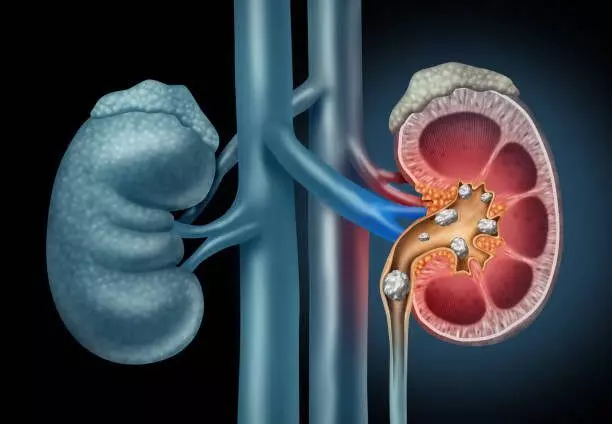Hyderabad hospital removes 154 kidney stones from Ramagundam man
The patient showed up with a CT scan result showing several renal calculi, the biggest of which was around 62mmx39mm
By Newsmeter Network
Hyderabad: A 45-year-old man from the Ramagundam district of Telangana underwent a successful stone removal surgery at a city hospital here. Urologists at the Asian Institute of Nephrology & Urology (AINU), Secunderabad, removed around 154 stones from his right kidney.
The patient showed up with a CT scan result showing several renal calculi, the biggest of which was around 62mmx39mm. The secondary stones were all recovered undamaged. In all, 154 stones, including the biggest stone, were removed.
All kidney calyces were affected by this large calculus. Upon evaluation, it was determined that he had uncontrolled blood sugar. He had endoscopic surgery called a Per Cutaneous Nephrolithotomy after getting his blood sugar levels under control.
Dr. Raghavendra Kulkarni, consultant urologist, AINU, described the patient as having “Staghorn calculi,” which are complicated kidney stones that take up the bulk of the renal collecting system. These stones are linked to a high morbidity rate, which can manifest as chronic urinary tract infections, kidney damage, and the requirement for dialysis in ignored or untreated cases. Staghorn calculi can be difficult to manage, especially in people with diabetes mellitus. Modern procedures and technology have made it possible to treat patients effectively while minimising morbidity.
“Multi tract PCNL was performed on the patient to completely remove the stones. The biggest stone, which measured around 62 mm by 39 mm, was broken up and recovered in several pieces. All of the secondary stones from every calyx were found whole. Sizes of the secondary stones ranged from as little as 2-3 mm to around 10 mm, and there were roughly 153 of them. The patient did well after waking up from anaesthesia, and there was very little blood loss and no need for transfusions,” added Dr. Raghavendra Kulkarni.
For individuals with complicated or significant renal stone loads, PCNL has come to be the first line of therapy. The safety and effectiveness of PCNL for renal stones have been confirmed by a number of trials. Diabetes mellitus makes post-operative complications, particularly infectious complications, more common.
Dr. Kulkarni expressed gratitude to members of his team, which also included doctors Gopal Ramdas Tak, Suraj Pinni, and Srinivas. According to Dr. Kulkarni, patients with diabetes mellitus and staghorn calculi present a particularly difficult challenge, and teamwork is crucial to producing an acceptable and convincing result.